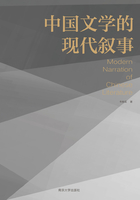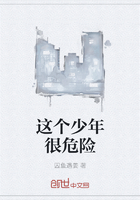Rosenthal,E(1999,January 24).Women’s suicides reveal rural China’s bitter roots.New York Times,A12.
Rustin,M.(1988).Absolute voluntarism:critique of a post-Marxist concept of hegemony.New German Critique 43,146—71.
Ryan,A.(1992,March 26).Professor Hegel goes to Washington.New York Review of Books,7—13.
San Fransisco Media Alliance(1991).Covering the war:A mediafile roundtable.Mediafile 12(1),6.
Saunders,D.(2001,October 19).Hollywood goes to bat for nation.Globe and Mail.
Schell,O.(1995).Maoism vs.media in marketplace.Media Studies Journal 9(3),33—43.
Schell,O.(1999).Learning and teaching.Media Studies Journal 13(1),90—100.
Schiller,D.(1981).Objectivity and news:The public and the rise of commercial journalism.Philadelphia:University of Pennsylvania Press.
Schiller,D.(1996).Theorizing communication:A history.New York:Oxford University Press.
Schiller,D.(1999).Digital Capitalism:Networking the global market system.Cambridge:Mass:The MIT Press.
Schiller,D.(1999).The legacy of Robert A.Brady:Antifascist origins of the political economy of communication.Journal of Media Economics,12(2),89—101.
Schiller,D.(2003).Communications and power:Interpreting China’s emerging role.Media Development 3,12—15.
Schiller,D.(2005).Poles of market growth?Open questions about China,information and the world economy.Global Media and Communication 1(1),79—103.
Schiller,D.(2007).How to think about information.Urbana:University of Illinois Press.
Schiller,D.and Mosco,V.(2001).Introduction:Integrating a continent for a transnational world.In Mosco,V.and Schiller,D.(eds.),Continental order?Integrating North America for cybercapitalism(1—34).Lanham,MD:Rowman&Littlefield.
Schiller,H.(1996).Information deprivation in the information rich society.In Gerbner,G.,Mowlana,H.,Schiller,H.I.(eds.),Invisible crisis.Boulder,CO:Westview Press.
Schiller,H.I.(1969).Mass communications and American empire.New York:Augustus M.Kelley.
Schiller,H.I.(1973).The mind managers.Boston:Beacon.
Schiller,H.I.(1976).Communication and cultural domination.New York:International Arts and Sciences Press.
Schiller,H.I.(1976).Communication and cultural Domination.White Plains,NY:M.E.Sharpe.
Schiller,H.I.(1983).Critical research in the information age.Journal of Communication33(3),249—257.
Schiller,H.I.(1984).Information and crisis economy.New York:Oxford University Press.
Schiller,H.I.(1989).Culture,Inc:The corporate takeover of public expression.New York:Oxford University Press.
Schiller,H.I.(1991).Not yet the post-imperialist era.Critical Studies in Mass Communication 8(1):13—28.
Schiller,H.I.(1993).Transnational media:Creating consumers worldwide.Journal of International Affair 47(1),48—58.
Schiller,H.I.(1996).Information inequality:The deepening social crisis in America.London and New York:Routledge.
Schiller,H.I.(2000).Living in the number one Country:Reflections from a critic of American empire.New York:Seven Stories Press.
Schlesinger,P.(1978).Putting“reality”together:BBC News.London:Constable.
Schlesinger,P.(1999).Changing spaces of political communication:The case of the European Union.Political Communication 16(3),163—279.
Schlesinger,P.(2001).Tensions in the construction of European media policies.In Morris,N.and Waisbord,S.(eds.),Media and globalization:Why the state matters(95—115).Lanham:Rowman&Littlefield.
Schramm,W.(1964).Mass media and national development:The role of information in the developing countries.Stanford,CA:Stanford University Press.
Schudson,M.(1978).Discovering the news:A social history of American newspapers.New York:Basic Books.
Schudson,M.(1994).The“public sphere”and its problems:Bringing the state(back)in.Notre Dame Journal of Law,Ethics,and Public Policy 8(2),529—546.
Schudson,M.(2000).The sociology of media revisited(again).In Gurevitch,M.and Curran,J.(eds.),Mass media and society(4thed.).London:Arnold.
Schumpeter,J.(1942/1976).Capitalism,socialism and democracy.New York:Harper&Row.
Siebert,F.S.,Peterson,T.,Schramm,W.(1963).Four theories of the press:The authoritarian,libertarian,social responsibility,and Soviet communist concepts of what the press should be and do.Urbana:University of Illinois Press.
Sivard,R.L.(1985).World military and social expenditures 1985.Washington:World Priorities.
Sklair,L.(2001).The Transnational Capitalist Class.Oxford:Blackwell Publishers.
Smith,H.(1992).The media and the Gulf War.Washington,DC:Foreign Policy Institute of the School of Advanced International Studies,Johns Hopkins University/Seven Locks Press.
Smyth,F.(2002,March 21).The price of propaganda.www.franksmyth.com.
Smythe,D.(1981).Dependency road:Communications,capitalism,consciousness and Canada.Norwood,N.J.:Ablex.
Smythe,D.W.(1977).Communications:Blindspot of Western Marxism.Canadian Journal of Political and Social Theory 1(3),1—27.
Smythe,D.W.(1978).Rejoinder to Graham Murdock.Canadian Journal of Political and Social Theory 2(2),120—127.
Smythe,D.W.(1994).After bicycles,what?In Gubeck,T.(ed.),Counterclockwise:Perspectives on communication(230—244).Boulder,CO:Westview Press.
Smythe,D.W.(1994).Counterclockwise:Perspectives on Communication(ed.Guback,T.).Boulder:Westview Press.
Solinger,D.(1992).Urban entrepreneurs and the state:The merger of state and society.In Rosenbaum,A.(ed.),State and society in China:The consequences of reform(121—141).Boulder:Westview Press.
Soper,K.(1991).Postmodernism,subjectivity and the question of value.New left review 186,120—128.















